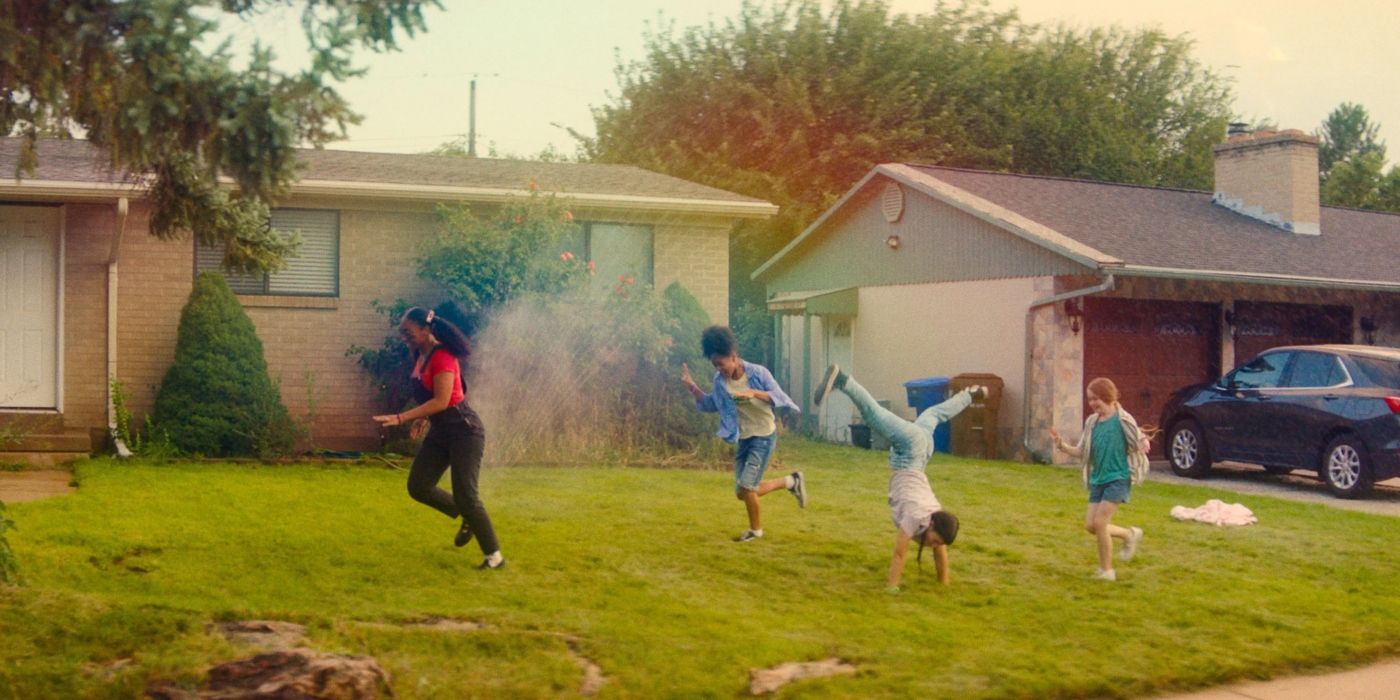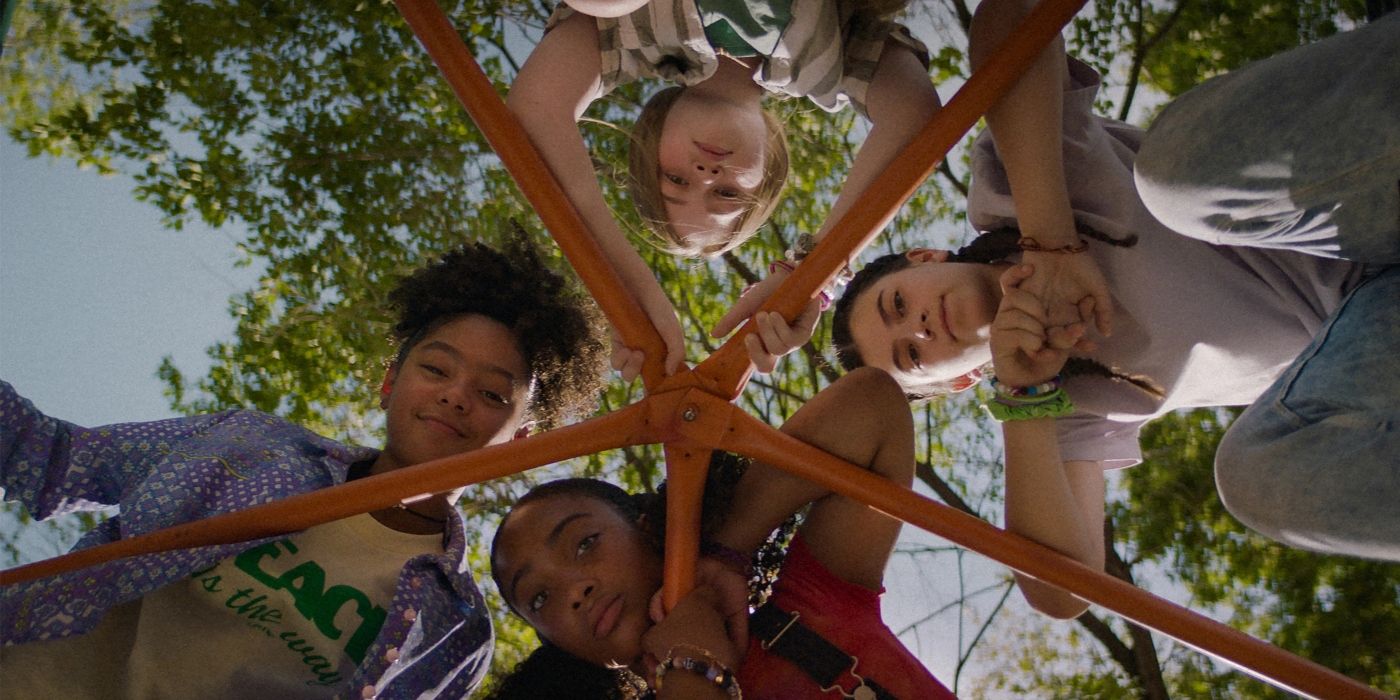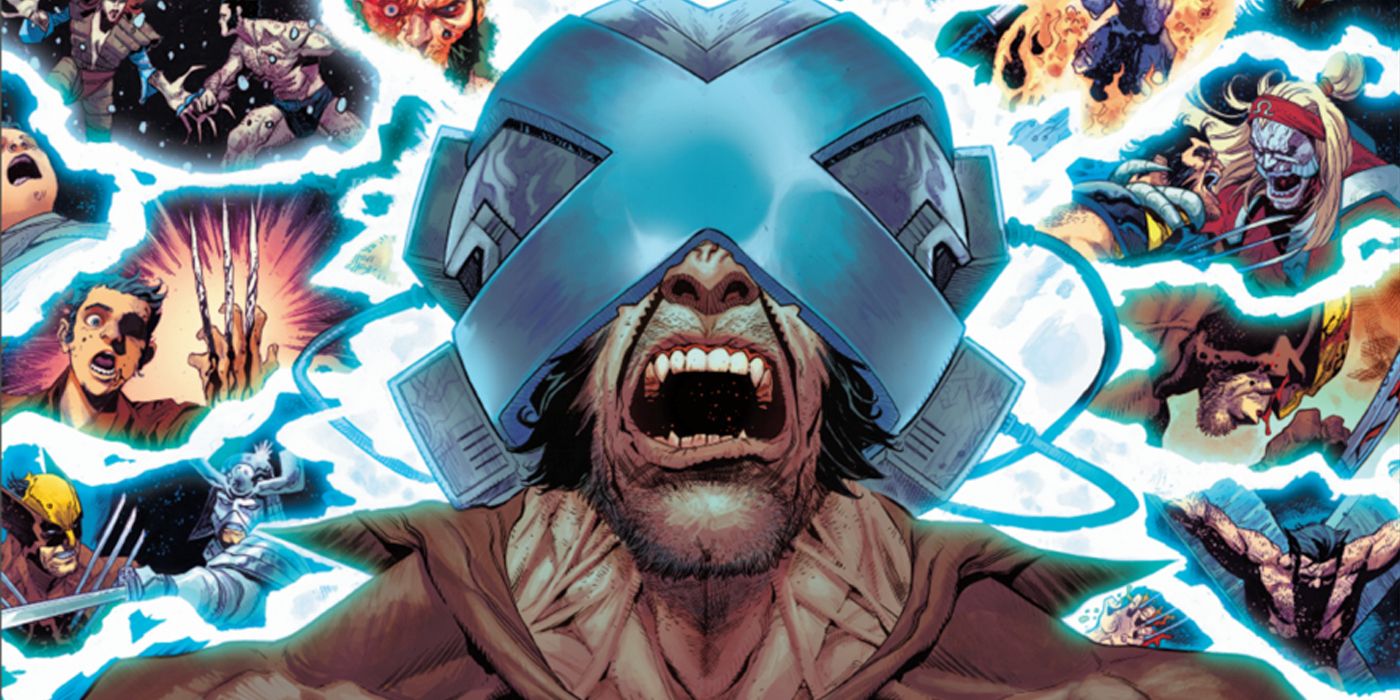Summering is a unique beast, playing with a purposefully mysterious tone that shifts from a grounded coming-of-age story to something stranger and even potentially supernatural. Focusing on four friends who are on the eve of going to Middle School -- and are keenly aware this might spell the end of their deep childhood bonds -- Summering takes them on a journey that touches on the perils of growing up while also finding time to introduce some terrified mothers and a dead body into their final days of summer.
Co-written by comics veteran Benjamin Percy, the film has a very personal edge that forms the heart of the story. During an interview with CBR ahead of Summering's theatrical premiere on Aug. 12, Percy discussed the initial intention behind the coming-of-age story. He dove into how he and Director/Co-writer James Ponsoldt utilized the legacy of the genre to explore something new from a female perspective and the driving questions behind his runs on Wolverine and X-Force in the Krakoa Era.
CBR: This is very much of the same tone as coming-of-age stories like Stand By Me. What do you think it is about this kind of story that audiences find so compelling, and how did you try to make the script of Summering reflect that while feeling unique to itself?
Benjamin Percy: Talking about Stand By Me or other coming-of-age tales -- here I am, a dorky dad with a girl who is the exact same age as the characters in this film. I've been sharing with her over the years all these stories that I grew up with. I was super excited to read her, for instance, The Hobbit, and she loved it. She also turned to me at the end and said, "There are no girls in this. Zero." I looked at the book again, and there's only one female pronoun in the entire novel. I showed her Stand By Me and The Outsiders and Where the Red Fern Grows and The Goonies. We're sharing all these films and novels together, and she's starting to get a little upset, recognizing that these stories for boys are supposed to be universal.
One day she came home from school, and usually, she comes downstairs and grabs me from my desk and says, "Let's get a snack," and we decompress. She tells me about her day. On this day, she didn't come downstairs. So I went up looking for her, and I found her at the family computer, and she was writing furiously. I asked her what she was up to, and she gestured to the screen. The title of the story was The Girl Hobbit.
The first line -- I'm butchering it, but it goes something like, "This story might seem familiar to you, but it's about a girl Hobbit." Then it launched forward from there. So it was in that same spirit of revisionism that James and I started talking about with the idea for Summering. We wanted to write something that was a coming-of-age tale for our daughters and, in doing so, sort of channel the legacy of coming-of-age films while trying to reinvent the spirit of them.
So much of the film is about approaching adolescence, the act of growing up. What was it like to juggle not just the universal approach to that and your daughter's modern viewpoints but your own personal experiences as well?
We've all seen a kid playing with a superhero action figure, a pony, or a doll, and they're speaking through it. They're role-playing through it. We've all seen kids building fairy houses in the woods or pretending themselves in the movie or as comic book characters. They're doing that because kids imaginatively prepare themselves for life, right? They're taught how to engage those imaginations through the stories they encounter. So here I am, asking myself, like, if my daughter is encountering all these stories -- let's say it's a crime story, or it's a horror story where women are victimized, or she's picking up adventure stories where women are absent. She's seen a broken mirror version of the world, [a] disturbing version of the world. I didn't like that.
I wanted to address that. I wanted to revise that notion. So one of the things that we did was right away kind of announced to the audience what the rules of this project were. If you watch the opening scene [of the film], you have these girls crouched down in the shower, and they're afraid. They're breathing shallow. Their eyes are flitting about. Something, someone is approaching, and a shadow looms on the curtain -- and it's one of their friends, who is wearing her mom's goofy sleeping mask and a ridiculous pink wrap bathrobe, and she has a DustBuster.
That scene is obviously reminiscent of something like Psycho. We're trying to say to the audience, "You think you know what kind of movie this is, and then we're going to pull the rug out from under you." The girls then bound out of the bathroom and down the hall and into the yard and into the sunlit space. All throughout the film, there's these different junctures where we're sort of tipping our hats to other stories. While trying to make this story its own, there are moments that are channeling Bridge to Terabithia. There are moments that are channeling Halloween. There are moments that are channeling Stand By Me.
This story is channeling everything that came before it while also trying to say that wasn't quite enough for us. It wasn't quite enough for our daughters... We wanted to try to write a story that was for kids that was also for adults -- that there was sort of multi-generational fluidity to it, but then also had a kind of feminist lens so that essentially the only dude who shows up in this entire film is dead.
I also think it's worth talking about how the film doesn't just approach the girls at the heart of the film, but their mothers as well -- it's the kind of beat other stories like this don't usually approach.
It's sort of the stations of life that you're witnessing. Here are these girls, but then here's the oldest sister, the teenager, and then there are the parents. These girls are looking forward worriedly because the teenager making fun of them, and here are the mothers trying to put boundaries around them and keep them safe, but also looking back on that time with a kind of nostalgia and forgetting that they were ever that close to anyone, [that] they had those kinds of friends.
They're all speaking to each other in different ways, in conflict and in harmony. We wanted this to be a story that was as much about the Moms in a way as it was about the daughters, even though the Moms only get a fraction of the screen-time... especially as the main cast steps off the asphalt. When they head into the woods, when they sort of crossed into Terabithia, magic almost takes over. We're in sort of like the fantastic lens of what an 11-year-old might see. So there are different things in the story that push the boundaries of reality.
I've also got to ask some X-Men questions, otherwise I'm going to explode. You've had a solid few years in that corner of the universe with titles like X-Force and Wolverine. You've gotten a lot of time with Logan as a character. What would you say has surprised you the most about him in your time writing him?
I've been writing Logan, whether for the podcast or for the comics, for, I think, it's five years now. As a sort of stocky, hairy, grumpy, smelly dude who lives in the frozen north, in a way, it feels like I'm writing a thinly veiled autobiography. I feel a lot of connection to Logan. That character has always been my favorite. So it's a total privilege to be his custodian right now. Of course, I don't want to just tread over familiar ground. I don't want to do karaoke. I want to try to put a unique stamp on the franchise. In doing so, I'm asking a few different questions. One is with Krakoa, a place he can finally call home with his family -- his adopted family as well as his biological family -- does he actually have a shot at happiness?
Wolverine is a character defined by pain. So I thought that was an interesting emotional algorithm to run him through. By the end of my run, that question will be answered, but I also wanted to do something -- and you see this from the very first page of my run -- I wanted to do something that addresses his long, complicated history. That addresses Canada, Madripoor, New York, Krakoa, Japan, his time in the lab with Weapon X, his time teaching at Xavier's School... How can I address all of that?
In this, I came up with this time shredding mission, X Lives of Wolverine and X Deaths of Wolverine, that took you on this mind-melting tour of the character's history while also bridging its way into this impossible nightmare future... The entire future of the X-Men is in danger because of some of the things that we've seen on the horizon.
I honestly love the depth and variety the recent direction has given that corner of the Marvel Universe, and having a CIA-esque X-Force is an element of that.
Yeah, the mutants have long been targeted, marginalized, been a victimized community. They've been a stand-in for "the other." I think what distinguishes this era of X-Men is that it's reflective of the cultural moment. If you look at movements, like Black Lives Matter [and] Me Too, you have people standing up and saying that's enough.
That's the case with the mutants right now -- they're standing up. They've stood up, and they've said to the world, "That's enough." This is a book about nation-building, and groups like X-Force are the equivalent of the mutant CIA. So, you know, this is the book that from the very beginning, I said, would be the poison book.
Summering debuts in theaters on Aug. 12.



